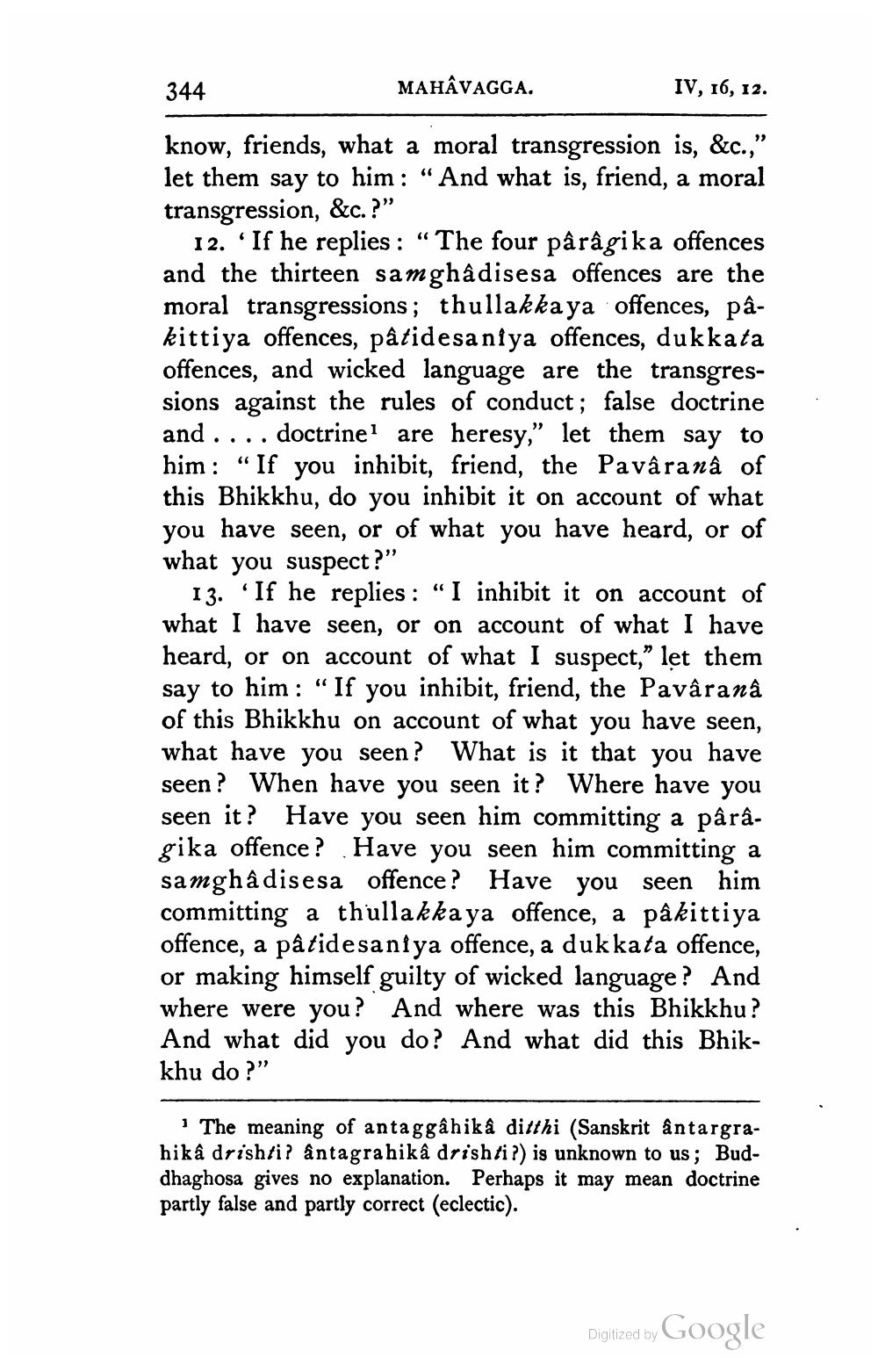________________
344
MAHÂVAGGA.
IV, 16, 12.
know, friends, what a moral transgression is, &c.," let them say to him: “And what is, friend, a moral transgression, &c. ?”
12. 'If he replies: “The four pârâgika offences and the thirteen samghadisesa offences are the moral transgressions; thullakka ya offences, pâkittiya offences, pâtidesaniya offences, dukkata offences, and wicked language are the transgressions against the rules of conduct; false doctrine and .... doctrinel are heresy," let them say to him: “If you inhibit, friend, the Pavâranâ of this Bhikkhu, do you inhibit it on account of what you have seen, or of what you have heard, or of what you suspect ?"
13. “If he replies: “I inhibit it on account of what I have seen, or on account of what I have heard, or on account of what I suspect," let them say to him : "If you inhibit, friend, the Pavâranâ of this Bhikkhu on account of what you have seen, what have you seen? What is it that you have seen? When have you seen it? Where have you seen it? Have you seen him committing a pârâ. gika offence? Have you seen him committing a samghâdisesa offence? Have you seen him committing a thullakka ya offence, a pâkittiya offence, a pâtidesanfya offence, a duk kata offence, or making himself guilty of wicked language? And where were you? And where was this Bhikkhu? And what did you do? And what did this Bhikkhu do ?”
1 The meaning of antaggâhika ditthi (Sanskrit antargrahikâ drishti? antagrahikâ drishti?) is unknown to us; Buddhaghosa gives no explanation. Perhaps it may mean doctrine partly false and partly correct (eclectic).
Digitized by Google




